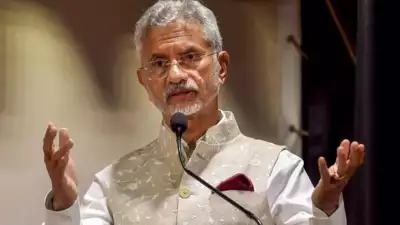NEW DELHI: UK Foreign Secretary David Lammy reached out to Indian External Affairs Minister S. Jaishankar on Thursday, as uncertainty looms over the whereabouts and next steps of ousted Bangladesh Prime Minister Sheikh Hasina, who fled to India from Dhaka earlier this week. Jaishankar, in a post on X, mentioned that the two leaders discussed the ongoing situations in Bangladesh and West Asia.
Following the call, the UK government stated that it is in continuous communication with India and other regional partners to monitor and respond to the latest developments in Bangladesh. However, the Ministry of External Affairs (MEA) of India has not confirmed whether the issue of asylum for Hasina was discussed with the UK or any other country. MEA spokesperson Randhir Jaiswal remarked that there was no update on her travel plans and that the next steps would be up to Hasina herself.
“She was allowed to come here on very short notice. The situation is still evolving. It would not be appropriate for me to comment on her travel plans,” Jaiswal added.
Given the current circumstances, it appears unlikely that Hasina will leave Delhi in the coming days. Jaishankar had earlier mentioned in Parliament that Hasina sought temporary refuge in India. Although she has not officially applied for asylum, it is speculated that she might prefer relocating to the US or UK. However, UK immigration rules require that asylum seekers apply from within the country, meaning Hasina cannot apply from India. According to UK policy, the safest option is to seek asylum in the first secure country one reaches—in Hasina’s case, India.
India faces a complex decision: it cannot expel Hasina, given the long-standing cordial ties between her and successive Indian governments, but allowing her an extended stay could strain relations with the new government in Dhaka—a risk India cannot afford. Dhaka’s Supreme Court Bar Association recently called for India to arrest and deport Hasina back to Bangladesh.
The UK’s stance on Hasina has historically differed from India’s, and this divergence is evident in how London has responded to her sudden downfall. While advocating for a peaceful and democratic future in Bangladesh, Lammy emphasized the need for a full, independent UN-led investigation into recent events, including Hasina’s role in the deployment of troops and the violence that has resulted in over 400 deaths in the past two months. The UK, alongside the US, declared that the January elections—where Hasina secured her fourth term—were neither free, fair, nor credible, despite India’s support for her, primarily due to her efforts in combating Islamic extremism.




